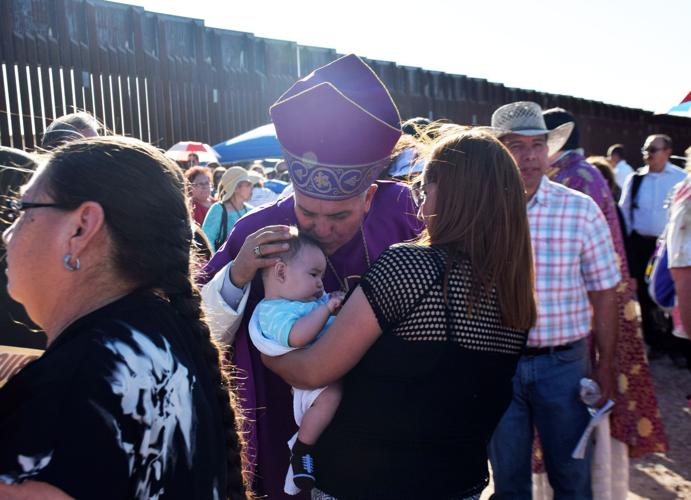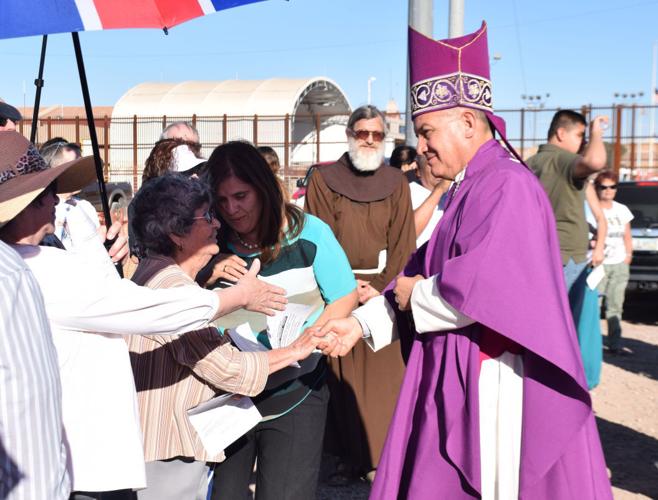Over the last couple of weeks, the border fence has symbolized unity and solidarity more than division.
On Sunday, Bishop Gerald F. Kicanas of the Diocese of Tucson and Bishop José Leopoldo González González of the newly created Diocese of Nogales, Sonora, celebrated Mass holding hands through the steel poles of the border fence, just days after thousands of people gathered in Juárez and El Paso to hear Pope Francis.
“We want to bring the reality of being one people, one church, one community, that is divided by this artificial border,” said Sister Lucy Nigh of the Sisters of Notre Dame, who helped organize the Mass this weekend, which was the first of three planned along the Arizona-Sonora border.
The first bishop of the Diocese of Nogales was appointed nine months ago. The new diocese encompasses the entire Arizona-Sonora border on the Mexico side, and is a part of the Diocese without Borders, which organized the Mass.
“We met as a group and were talking about how we could work as neighbors to share our faith and to share our vision together,” said Kicanas. “So the idea came about that we would have a mass all along our common border.”
During his historic trip to Mexico, Pope Francis focused on the need to protect the rights of people looking for a better life, said Casey Hoyack, a University of Arizona graduate student who attended the Mass in Juárez and in his hometown of Douglas.
“The point the Holy Father made is that these are human beings and these people have human dignity and we need to look out for them,” he said.
Pope Francis has given immigration particular attention since the beginning of his papacy, calling on the faithful to provide relief for refugees and migrants.
In Juárez, he prayed that there would be no more deaths on the border.
“You know, he has a heart for migrants,” Kicanas said. “Obviously he wanted to come to the border here between Mexico and the United States where many people have died trying to find a decent way of life.”
Sunday’s binational Mass attended by hundreds in Douglas-Agua Prieta echoed that message.
“As a church we have to respond to these challenges,” González said, asking the audience to consider what each person can do in the face of other’s suffering.
Being divided by a wall made it difficult to see the people on the other side, but that didn’t prevent the message from getting through, Hoyack said.
Kicanas’ message that we are all one people in particular resonated with him.
“We look up at the same stars,” Hoyack said. “The same sun shines on us. The same moon shines on us. It’s the same faith that we share.”
Pope Francis was clear in his expectation that the church respond to the plight of migrants, Kicanas said.
“And one of the things he said which I think is so powerful is that these are not statistics. These are not numbers. But they are human beings with faces and names.”






